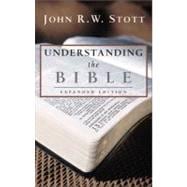
Note: Supplemental materials are not guaranteed with Rental or Used book purchases.
Purchase Benefits
What is included with this book?
| CONTENTS | |
| Preface | |
| Publisher’s Note | |
| 1.The Purpose of the Bible | |
| 2.The Land of the Bible | |
| 3.The Story of the Bible (Old Testament) | |
| 4.The Story of the Bible (New Testament) | |
| 5.The Message of the Bible | |
| 6.The Authority of the Bible | |
| 7.The Interpretation of the Bible | |
| 8.The Use of the Bible | |
| Person Index | |
| Subject Index | |
| MAPS | |
| The Fertile Crescent | |
| Palestine’s Natural Regions | |
| Palestine as Jesus Knew It |
The New copy of this book will include any supplemental materials advertised. Please check the title of the book to determine if it should include any access cards, study guides, lab manuals, CDs, etc.
The Used, Rental and eBook copies of this book are not guaranteed to include any supplemental materials. Typically, only the book itself is included. This is true even if the title states it includes any access cards, study guides, lab manuals, CDs, etc.
Excerpted from Understanding the Bible by John R. W. Stott
All rights reserved by the original copyright owners. Excerpts are provided for display purposes only and may not be reproduced, reprinted or distributed without the written permission of the publisher.